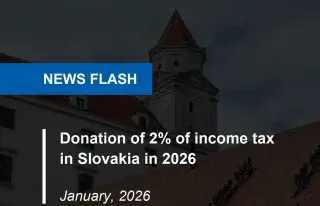read also
Kazakhstan Issues Its First Digital Nomad Visa: Who Is Eligible and How to Apply

Kazakhstan’s Ministry of Digital Development, Innovations and Aerospace Industry announced the country’s first recipient of the Digital Nomad Visa. The visa was granted to IT specialist Abdelmadjid Belmekki from Algeria, reports the Profit.kz portal.
Belmekki cited the program’s affordable cost of $300 and the absence of minimum income requirements as key factors in his decision. He praised the application process and noted that the initiative has significant potential to attract foreign professionals and boost Kazakhstan’s startup ecosystem. He also suggested enhancing the official program website with information on taxation, legal regulations, business registration, and support measures for digital nomads.
The Digital Nomad Visa and Digital Nomad Residency programs were launched in 2024 on the orders of Kazakhstan’s President. The initiative aims to attract top foreign professionals, particularly in artificial intelligence and digital technology sectors. The Digital Nomad Visa targets IT professionals from countries whose citizens require a visa to enter Kazakhstan and offers a simplified application process. Digital Nomad Residency, on the other hand, is designed for citizens of visa-free countries, enabling participants to obtain a residence permit in Kazakhstan through an accelerated procedure.
Candidates’ professional skills are assessed by specialists from Astana Hub. To date, over 152 applications have been submitted under the program by IT professionals from 21 countries, including the USA, Canada, Turkey, Algeria, and CIS nations. The greatest interest has come from experts in software development, automation, and cybersecurity.
The Ministry of Digital Development reported that an acceleration group was formed for the initiative, involving relevant government agencies. The ministry emphasized that despite the complexity of migration procedures, they have managed to create a transparent and effective mechanism for attracting digital nomads. It also noted that Kazakhstan continues to invest in developing its own IT workforce through educational, acceleration, and innovation projects.
In recent years, Kazakhstan has been actively developing and implementing programs to attract foreign professionals. Currently, the country offers several types of visas, each targeting specific categories of professionals.
IT Specialists – Applications are submitted online. The visa is intended for qualified specialists whose professions are included in the approved list of in-demand IT fields. To apply, candidates need an Individual Identification Number (IIN) and an electronic digital signature (EDS). Applicants must register on the Astana Hub portal and upload a copy of their passport, resume, portfolio, motivation letter, criminal record certificate, and a photo in the specified format.
Neo Nomad Visa (category B12-1) – Issued to foreign specialists working remotely for foreign companies. Key requirements include a verified stable income of at least $3,000 per month, bank statements for the past six months, tax returns, a criminal record certificate, and health insurance. The visa is issued for one year with the possibility of extension for another year. The applicant’s family members may obtain residence permits.
Digital Nomad Visa (B9-1) – Processed through the Digital Nomad Residency project and designed for foreign IT specialists seeking permanent residence. Unlike the Neo Nomad Visa, it immediately provides an opportunity to apply for permanent residency. The primary requirement is a qualification in one of the priority IT specialties; there are no minimum income requirements.
Visa Category B9 – Designed for highly qualified professionals in medicine, science, education, innovation, and creative industries. With confirmed professional status and significant achievements, it allows individuals to obtain permanent residency in Kazakhstan.
According to the Ministry of Tourism and Sports, implementation of the Neo Nomad Visa alone could generate approximately 3.6 billion tenge (over $7.3 million) annually for the national economy if 500 specialists participate.
Data from the Bureau of National Statistics shows that emigration rates from Kazakhstan are declining. In the first months of 2025, 1,700 people left the country — the lowest figure in 25 years and 2.8 times fewer than in the same period in 2024 (4,800 people). At the same time, the number of immigrants also decreased: from January to April 2025, 8,100 people moved to Kazakhstan for permanent residence, compared to 9,900 a year earlier.
Over the past 25 years, a steady trend has emerged: from 155,700 departures in 2000 to 12,700 in 2024. Exceptions were observed only in 2006–2008 and 2013–2019. Russia remains the primary destination, accounting for 69% of emigrants in 2024. However, the outflow has significantly decreased — in the first quarter of 2025, only 644 people moved to Russia, 75.5% fewer than in January–March 2024. Germany holds second place, but also saw a 67.9% drop. Other popular destinations have similarly declined. The only exception has been Kyrgyzstan, which sees about 300 people resettling there annually, with this flow gradually increasing.
Experts attribute the decrease in emigration to economic growth, rising demand for labor, the completion of large-scale ethnic resettlement programs, and increasing populations in Central Asian countries, which are significant sources of immigrants to Kazakhstan.








